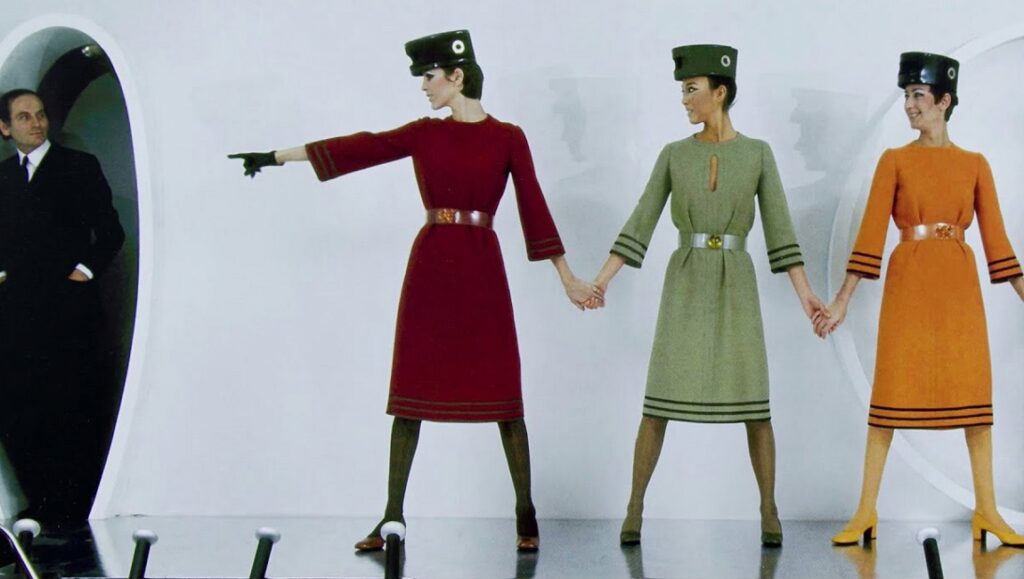Pierre Cardin, indisputably, is one of the most iconic names in the realm of fashion — known to many as a genius, a hyper-modernist, an avant-garde designer. Italian-born but France-based, Cardin helped to revolutionize fashion in the ‘60s and ‘70s with his futuristic, unconventional vision. He’s a true socialist who often speaks of himself in the third person (as an independent entity or, perhaps, a sentient brand), and who not only brought haute couture into ready-to-wear and hoi polloi wardrobes (causing the wrath and jealousy of his rivals, like Yves Saint Laurent), but also shattered boundaries of discrimination by hiring models of diverse races and ethnicities. Co-directors P. David Ebersole and Todd Hughes clearly have all this in mind as they attempt to shed further light on the life and work of a man who’s often considered to be an enigma; their House of Cardin uses rich archival footage, photographs, video clips from various catwalk shows, and a wide-range of talking-head interviews (designers, actresses, and models, but also artists, journalists, collectors, friends, co-workers — and, of course, Cardin himself). And thanks to a rhythmic and energetic deployment of montage, along with a terse soundtrack, this film turns into a quite entertaining roller-coaster ride — one that shapes a free-flowing narrative and visual structure that pretty much resembles Cardin’s pop-art (especially the geometric designs of his “astral period”).
One issue that Ebersole and Hughes’s film has is the same that a lot of portrait-documentaries struggle with, that being how to mount a comprehensive investigation of a cultural or historical paragon in a limited time, without leaving much of the subject matter only glossed over. One can easily imagine how this quandary becomes even more vexing when it comes to profiling a 98-year-old workaholic like Cardin, whose nonstop professional achievements — from the fields of fashion to cinema to theater — span almost seven decades, and whose empire-sized enterprise and inspiring influence are scattered and global. A luminary, as well as something of a “sell-out” superstar, Cardin can recollect his memories and recount fabulous stories about his friendships with Jean Cocteau, Pier Paolo Pasolini, and Luchino Visconti; about a meeting with Marlene Dietrich and some political leaders, or his unyielding affection for both actress Jeanne Moreau and Andre Oliver (the latter being Cardin’s main assistant for more than 40 years until his death in 1993). Somewhat understandably, Ebersole and Hughes are tempted to cover as many of these threads as they can — but end up doing so with an unproblematized biographical approach that hastily leaves some of the stories and topics under-developed. Perhaps this could have been a more effective and engaging work in the form of a mini-series — or if the filmmakers had opted for a more in-depth, but narrower, scope. For better and for worse, House of Cardin manages to be an informative and convivial homage to a man who changed the outlook of our contemporary world and freed the notion of “beauty” from its well-established traditions and hierarchical orders.
Published as part of Before We Vanish | September 2020.


Comments are closed.